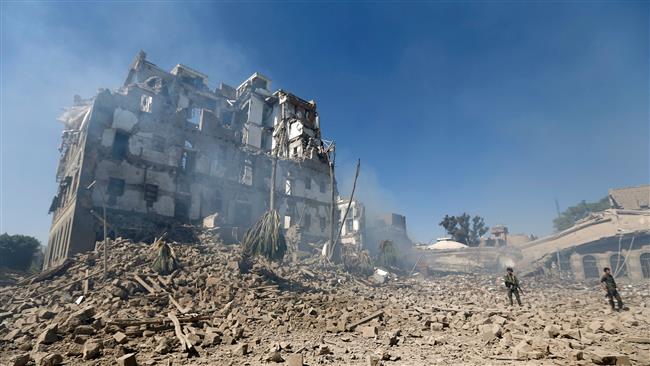
RNA - Today it doesn’t take the smarts of a UN to realize that the universal conversation on International Law and International Humanitarian Law, filtered through US/Saudi-controlled, often-fractured Security Council and Human Rights Council, is faltering. While trying to analyze how to fix its modern-day broken system, from the promotion of warmongers like Saudis to a seat at the Human Rights Council to acting on fake news about the Ansarullah movement at the Security Council, right now is a critical moment for the world body to hold the line and realize that people are still dying in that poorest country in the Arab world. If the UN hopes to reinvigorate its power and stop this mounting humanitarian catastrophe, today its International Law defenders are called upon to act - and quickly.
As we speak, some members of the Security Council are expressing deep concern about the situation in Yemen. They say, and by ‘they’ we also mean the United States and Britain which are still arming and supporting the Saudi-led aggression against Yemen – the latest developments in Yemen create a period of maximal risk, a zone of all dangers – both on the humanitarian and military front. The first priority is to silence weapons and to allow a complete and immediate humanitarian access on all Yemen and via all its ports and airports.
Even Britain's Deputy Ambassador to the UN Jonathan Allen agrees. He says, “The escalation in fighting couldn’t have come at the worse time for the people of Yemen. There are nearly 8 million now who are in dire humanitarian need. We need humanitarian access, we need commercial access and this is critical.”
Given the current situation, the fate of International Law and International Humanitarian Law looks bleak. On this, UN experts investigating the indiscriminate bombing campaign are accusing the Saudi-led coalition of violating International Humanitarian Law by attacking civilians, the wounded, and medical personnel. The experts say all the existing information indicates that these attacks result in a disproportionately higher numbers of civilian casualties, when compared to military casualties.
International Humanitarian Law prohibits attacks that may cause civilian deaths and injuries or damage to civilian buildings, and requires any party planning an attack to first assess its proportionality. The experts' report to the head of the UN Security Council committee monitoring sanctions against Yemen also says the panel is unaware of any measures taken by the Saudi-led coalition to make such an assessment - or to prevent death and injury to civilians and damage to civilian buildings.
The panel concludes by saying that it “remains unconvinced” that the requirements under International Law are met but it will continue to investigate as “the panel finds, in respect of the air strikes, that the Saudi-led coalition violate its obligations not to attack those unable to fight, the wounded and medical personnel, and do not take effective precautionary measures to minimize harm to civilians, including the first responders.”
Needless to say, the fate of International Law and International Humanitarian Law does indeed look bleak in Yemen. Yet, the recent history of International Law offers an encouraging story of the power of the UN to protect the core principle of protecting civilians and shows that even if things look bad, international pressure holds the key to saving Yemen as we know it:
Ending Famine - The world is an unequal place, with large parts beset by poverty and hunger, and thousands still die of malnourishment every year. But as with war, the numbers have fallen from the 20th century, when more than 70 million died from famine. Again, intervention by the UN’s World Food Programme, Food and Agriculture Organisation and UN-sponsored emergency aid management can take some of the credit.
One thing is clear: All UN members have a responsibility to continue protesting and spreading awareness about the importance of forcing the Saudi-led coalition to end their unjustified aggression on Yemen. They don’t have to compromise. They can actually stay true to what the international civil society is fighting for and continue the senseless war.
They should all understand the universal value of International Law and International Humanitarian Law on which the door to lift the blockade is kept accessible and peace talks organizing is made possible. This universal and multi-issue movement at the UN was critical in helping Iraq and Syria end their internal conflicts and win the war on terror. The same universal movement can help pressure Saudi Arabia, its allies and their weapons suppliers to adhere to International Law and exit their intractable war.
847/940